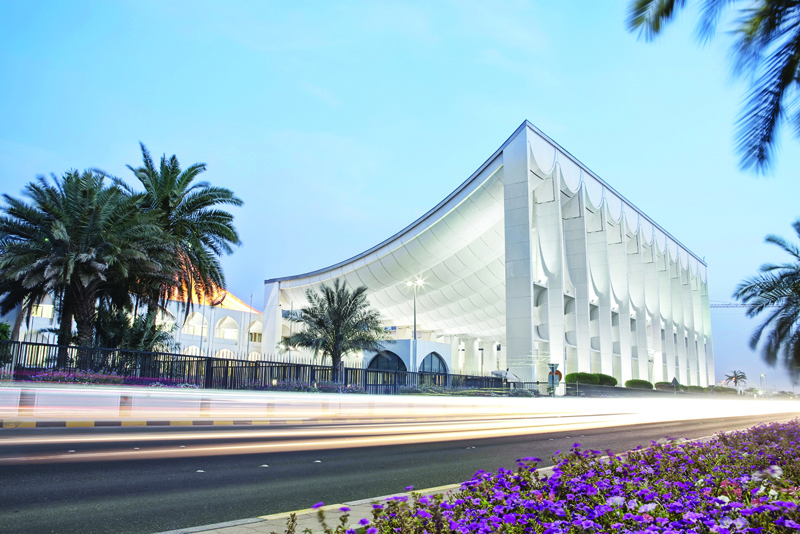By B Izzak
KUWAIT: Kuwait's constitutional court yesterday revoked the parliamentary membership of leading opposition MP Bader Al-Dahoum for being convicted of insulting HH the Amir seven years ago, in a surprising ruling that is certain to ignite a political crisis that has engulfed the country for months.
The court, whose rulings are final, also deprived Dahoum from running for public office for life, applying a highly controversial law passed by the pro-government Assembly in 2016 that prevents people convicted of insulting the Almighty, prophets and the Amir from contesting parliamentary elections for life.
Bader Al-DahoumTwenty-eight MPs said in a statement following a hurriedly-arranged meeting that the court ruling violated logic, well-established legal principles and bases and breached the authority entrusted in the court, especially after the regular courts had unequivocally ruled in favor of Dahoum and closed the case.
The lawmakers vowed to change what they described as undemocratic laws, including the much-criticized law used by the court to revoke Dahoum's membership. The statement said Kuwait has been a great democratic country, but has retreated in the recent past because of rife corruption and lack of justice.
The restrained statement came even as many opposition MPs said they will boycott the Assembly's next session to prevent the government from taking oath in the Assembly. Several opposition MPs called before the meeting to declare non-cooperation with the government, blaming it for the turn of events, but it appears that the 28 lawmakers have decided to use the Assembly to pass urgent laws.
Opposition MP Mohammad Al-Mutair however said that a grilling against HH the Prime Minister Sheikh Sabah Al-Khaled Al-Sabah that he had filed along with Dahoum is still standing. MP Hamdan Al-Azemi said yesterday he will replace Dahoum in the debate of the grilling.
The constitutional court accepted three petitions contesting the election of Dahoum, who was cleared to run in the Dec 5 polls by the court of cassation, whose rulings are final. Dahoum, a professor of religious education, was convicted of insulting HH the Amir and was handed a suspended term by the court of cassation, which gave him three years to prove good conduct.
In 2016, he was disqualified from contesting the Assembly polls by the interior ministry. The exclusion was upheld by the administrative court at its three levels. In last year's polls, the interior ministry again disqualified him from contesting. The lower court supported the decision, but the courts of appeals and cassation overturned the decision and allowed him to run. He won a seat in spectacular fashion, coming in second place out of 10 and bagging the second highest number of votes in Kuwait.
The constitutional court said in its ruling yesterday that Dahoum is forbidden by law to be included in the electoral rolls because he was convicted of insulting HH the Amir. It added that losing his right as an eligible voter makes him ineligible to run in elections, according to the election law.
The ruling cited the law as stating that "a member of parliament must not have been convicted of the crime of insulting the Almighty, prophets or the Amir". Because he was convicted of this crime, "his election to the Assembly is null and void".
Hundreds of MPs and activists thronged Dahoum's home to declare their total support for the opposition leader, who has vowed to fight corruption. Dahoum described the ruling as an interference by the court in the works of the legislative council, adding this represents "a demolition of state institutions and the constitution". He blamed the government for "the bad situation" in the country because of its alliance with "corrupt and influential" people.
MP Osama Al-Munawer said the constitutional court's ruling will "open doors wide for chaos", adding that he will submit a bill to allow Dahoum to contest the polls. The revoking of Dahoum's membership must be first approved by the Assembly in a vote to allow inviting voters of the fifth constituency to elect a replacement in supplementary polls.




